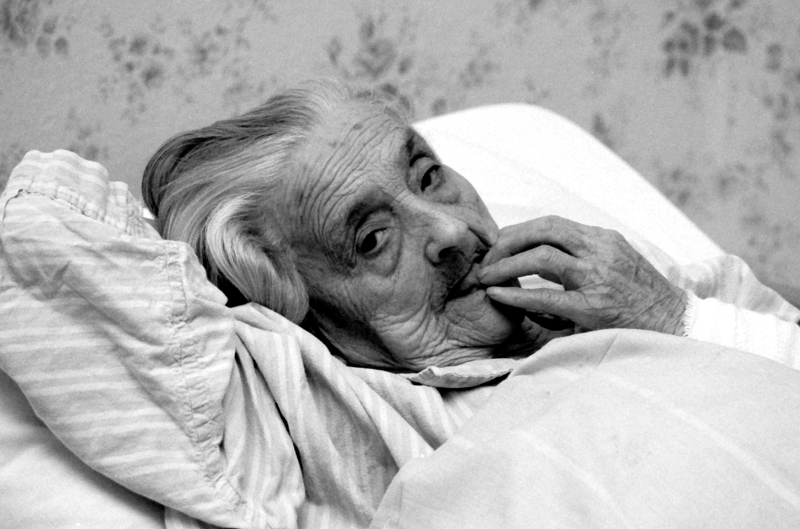By Charles Ornstein and Jessica Huseman, ProPublica
Federal health regulators have announced plans to crack down on nursing home employees who take demeaning photographs and videos of residents and post them on social media.
The move follows a series of ProPublica reports that have documented abuses in nursing homes and assisted living centers using social media platforms such as Snapchat, Facebook and Instagram. These include photos and videos of residents who were naked, covered in feces or even deceased. They also include images of abuse.
The Centers for Medicare and Medicaid Services, which oversees nursing homes, said in a memo to state health departments on Friday that they should begin checking to make sure that all nursing homes have policies prohibiting staff from taking demeaning photographs of residents. The memo also calls on state officials to quickly investigate such complaints and report offending workers to state licensing agencies for investigation and possible discipline. State health departments help enforce nursing home rules for the federal government.
“Nursing homes must establish an environment that is as homelike as possible and includes a culture and environment that treats each resident with respect and dignity,” said the memo signed by David Wright, director of the CMS survey and certification group. “Treating a nursing home resident in any manner that does not uphold a resident’s sense of self-worth and individuality dehumanizes the resident and creates an environment that perpetuates a disrespectful and/or potentially abusive attitude towards the resident(s).”
CMS said that nursing homes have a responsibility to protect residents’ privacy, to prohibit abuse, to provide training on how to prevent abuse, and to investigate all allegations of abuse. If homes fail to do so, they can face citations, fines and theoretically even termination from the Medicare program.
Also last week, Sen. Charles Grassley, R-Iowa and chairman of the Senate Judiciary Committee, called on other federal agencies to take action on the problem. He sent letters to the U.S. Department of Justice and to the Office for Civil Rights within the U.S. Department of Health and Human Services asking whether “rules and protections are in place to prevent and punish these types of abuses.” He also has sent letters to social media companies, calling on them to pay more attention to this. The Office for Civil Rights is working on its own guidance related to social media but hasn’t released it yet.
In a statement to ProPublica, Grassley praised the new CMS memo. “This guidance is welcome and necessary,” he wrote. “Nursing homes are obligated under the law to keep their residents free from abuse. Exploitation on social media is a form of abuse, and the agency memo makes that clear. We need to prevent it, and we need to punish it when it happens.”
ProPublica has identified 47 instances since 2012 in which workers at nursing homes and assisted-living centers shared photos or videos of residents on social media networks. This includes three discovered in recent weeks. At one Los Angeles nursing home, an employee took video of a coworker “passing gas” on the face of a resident and posted it on Instagram, according to a May inspection report.
“An interview was conducted with Resident 1 and the resident stated that facility employees pass gas in his face as often as every month,” the report said. One employee resigned and a police report was filed.
While some states have taken harsh steps against nursing homes at which social media abuse occurs, other states have not. We reported last month that Iowa health officials recently discovered it wasn’t against state law for a nursing home worker to share a photo on Snapchat of a resident covered in feces because his genitals weren’t visible. Officials are trying to change the law when the Iowa Legislature reconvenes early next year.
The federal government memo sets uniform standards for how such abuse should be written up by inspectors and the severity of sanctions that should be levied. In the past, there was great variability.
Last month, the industry’s trade group issued its own suggestions for dealing with such situations, encouraging training and swift responses by these facilities when allegations are brought to light. The group also is holding training events around the country. While many facilities ban the use or possession of cell phones by employees when in resident areas, some have also found such rules impractical to enforce.
Greg Crist, a spokesman for the American Health Care Association, the trade group, said the CMS memo dovetails with the industry’s effort to stop social media abuse.
“The two words in that CMS directive that stand out most to me are ‘privacy’ and ‘responsibility,'” Crist wrote in an email Monday. “That’s why we have taken responsibility and made a concerted, nationwide effort to educate and share best practices with our centers not only on how to detect and root out this abuse, but also proactive steps to ensure it doesn’t happen in the first place.
“It’s not an issue that is conquered overnight, but every day, we get smarter about it.”
ProPublica is a Pulitzer Prize-winning investigative newsroom. Sign up for their newsletter.



























